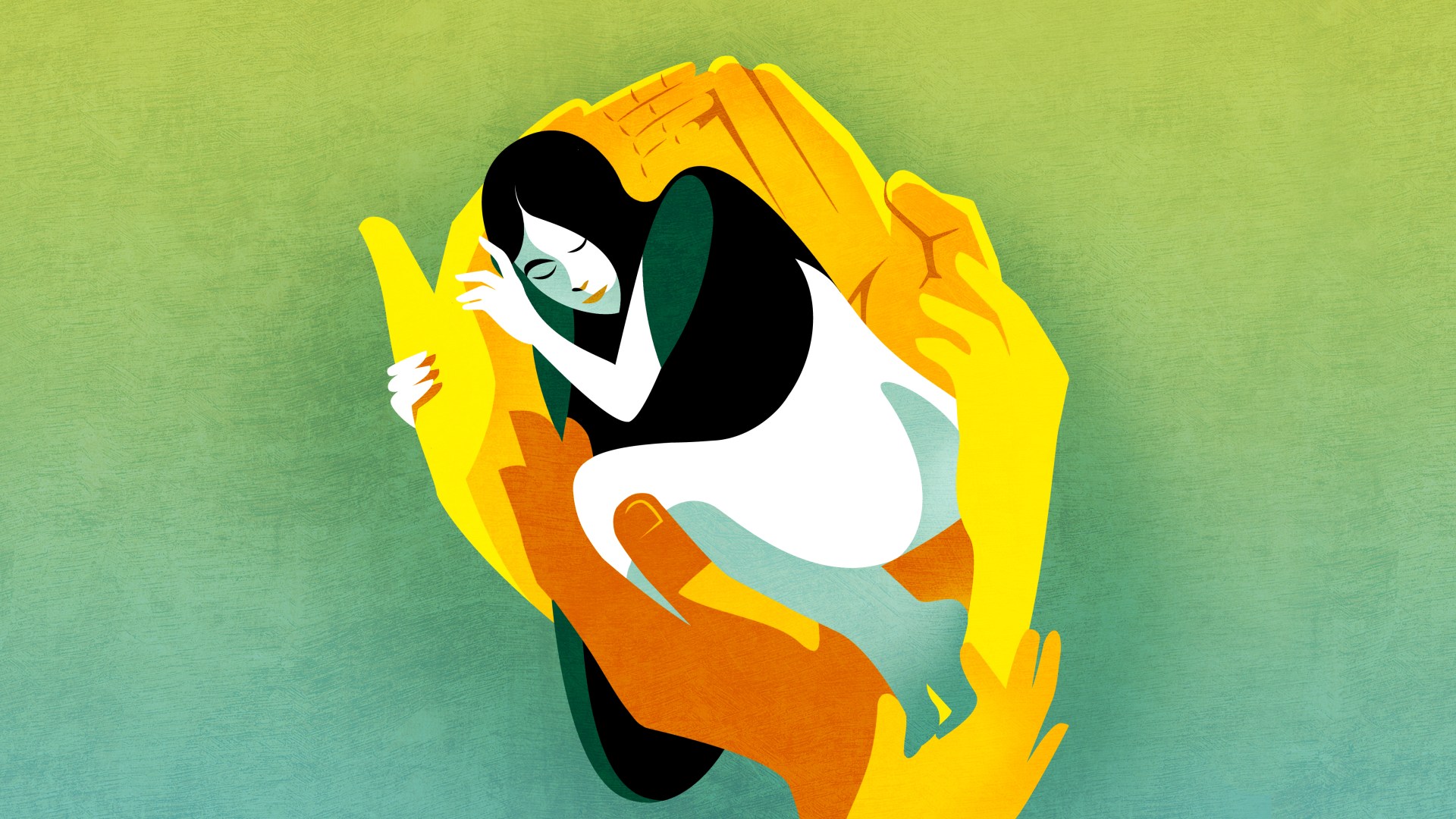Modern feminism has spent the last century fighting to give women the freedom to have jurisdiction over their voting rights, their ambitions, and their bodies. Some of the movement has done great good. But some of it has done great harm by reinforcing a common and problematic idea: that women’s rights ought to be understood in terms of property rights. “Owning your own body” seems like a natural enough freedom—who wouldn’t want it?—but in fact, it delivers a reductionistic conception of human flourishing that fails both women and the unborn.
We see this most clearly in the abortion debate, vaulted into the public square 46 years ago with the landmark Supreme Court ruling on Roe v. Wade. Both this ruling and the subsequent Planned Parenthood v. Casey decision codify an ownership view of the self. Women’s bodies are a form of property, and with this property comes the constitutional “right of privacy,” wrote Roe’s majority Court. In practice, that means a man is given a temporary invitation to trespass, and the fruit of that act (if any) belongs to the woman—at least until the child crosses from womb to world.
You don’t have to search far to find arguments for ownership. In response to Judge Brett Kavanaugh’s confirmation to the Supreme Court, Planned Parenthood put out a statement that women deserve “the right to control [their] own bodies.” The hallways of Twitter have echoed with a related imperative—that men should “stop controlling women’s bodies.” And the third annual Women’s March will re-up the familiar rally cry, “My body, my choice.”
Advocates of the private ownership view claim that it helps women protect themselves. However, healthy as it might appear, self-ownership doesn’t, in fact, enable the safety of women or their unborn children and arguably begets more violence against both, not less.
Take, for example, the intersection of the pro-choice and #MeToo movements. As abortion advocates rightly decry abuse against women as a violent infringement on the body, they fail to see the clear double standard: that Roe enables women to legally practice an equally violent infringement on the unborn. Rape cases that end in abortion illustrate this tragic point. One victim of violence becomes the perpetrator of a second act of violence, and one incursion (against a woman’s body) invites another (against her baby’s body). In any abortion case, a mother’s bodily ownership leads to a child’s isolation and death.
(It’s worth noting that some scholars see close parallels between the 1857 Dred Scott decision—which left slaves as the legal property of their owners—and Roe, which left unborn children as the legal property of their mothers.)
If “owning yourself” is clearly the wrong vision, the right one is intensely unintuitive and almost jarring to consider: We’re called to stewardship, not ownership. Men don’t own women’s bodies, but women don’t own them, either. Instead, men and women are obligated to steward themselves, steward each other, and together steward the life of the child inside the womb.
Women’s liberation will come not from self-possession but from sacrificial stewardship.
The stewardship view solves dilemmas not just for the unborn but for women, too. As we seek to end violence against the female sex, the salient problem is not that women need greater ownership of their bodies. The problem is that we find ourselves downstream from a sexual revolution that has been cutting a powerful but misguided course through our culture, and as a result, both sexes are failing to carefully steward one another. Men, in particular, are surely not stewarding women well. The natural path of that river leads not to the good of women or men but to greater confusion, greater peril, and greater suffering.
In the end, women’s liberation will come not from self-possession but from the painfully simple relational models set forth in Scripture: the sacrificial stewardship of monogamous marriage and the sacrificial stewardship of celibate singleness.
This stewardship approach affords women not only greater protection but also greater partnership with men. The main concern for a man isn’t one of extramarital consent—“When can I trespass, and how do I know if I have permission?”—but rather one of marital or celibate care: “What can I do to seek the wellbeing of this person?” How effectively men (or women) practice this model is a separate question, of course. But when we steward one another well, we reflect the sacred, tender, and enduring bond that begins in the Genesis narrative: “This is now bone of my bones and flesh of my flesh” (Gen. 2:23).
After God creates man and woman, one from another, he then commands both to work together toward the greater good of the world around them. Single or married, we do that best inside the boundaries not of self-ownership but of stewardship.
Andrea Palpant Dilley is an associate editor at CT.
Have something to say about this topic? Let us know here.










